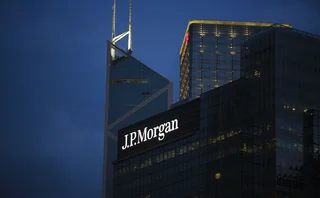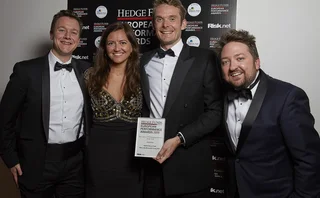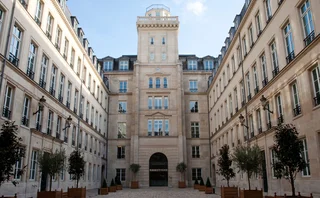
Hedge fund eyes opportunities in South Africa
Decillion Fund Management (DFM) was one of the first companies to launch a hedge fund in South Africa. Andre Malan, a member of the initial investment team, first became involved in the hedge fund industry in January 1999 when Decillion launched the Big Rock Fund and he was appointed as one of the fund managers.
Malan has been involved in Decillion Fund Management since its inception and was made an executive director in April 2004. In November 2003 he started the Fairtree Capital Fund and has been managing that ever since. The fund was positioned as a market neutral fund.
Malan and Nel launched the Fairtree Capital Long/Short Equities Fund in August 2007. The Fairtree Capital Market Neutral Fund re-opened for investment soon after. To increase research capacity, three investment professionals joined the company in 2008.
The Fairtree funds have consistently produced top-quartile performances over the last five years. "The funds are managed by a team with a combined investment experience of more than 20 years. The track records of the funds rely on a robust and repeatable investment process that supports a unique investment strategy," explains Nel.
"Long-term investments are based on fundamental knowledge of stocks and economic environment. Medium and shorter-term opportunities are based on fundamental valuation knowledge. The risk-management system guides investment decisions," says Nel.
Economic trends coupled with valuation inefficiencies in the South African stock market present multiple alpha opportunities for both funds. Stocks with deep fundamental value are trading at significant discounts and Nel believes there are "exciting" new themes emerging.
Nel expects the South African economy to recover much quicker than Europe and will probably experience a shorter recessionary period, if at all. Overall, he believes recent market volatility has created multiple relative value opportunities.
"Stocks with fundamental value are trading at significant discounts at the moment, this therefore makes relative value opportunities available to us more than ever," Nel adds.
Investments are grouped into five categories. These include buffet trends, which are robust business models that consistently outperform the market during different economic cycles and with no time horizon. Macro themes include investment opportunities presented by prevailing and expected economic conditions with a three-to-12 month investment horizon. Intra-sector pairs follow a three-to-six month horizon and consist of matching-pairs trading. X-sector pairs are cross-sector matched pairs with the same three-to-six month horizon. Trading opportunities include short-term extreme directional opportunities usually presented with a time horizon of days rather than months.
Macro themes make up the majority of trade ideas in both the long/short and market neutral portfolios. These include global, industry, commodity prices and exchanges and interest rates. n
Only users who have a paid subscription or are part of a corporate subscription are able to print or copy content.
To access these options, along with all other subscription benefits, please contact info@risk.net or view our subscription options here: http://subscriptions.risk.net/subscribe
You are currently unable to print this content. Please contact info@risk.net to find out more.
You are currently unable to copy this content. Please contact info@risk.net to find out more.
Copyright Infopro Digital Limited. All rights reserved.
You may share this content using our article tools. Printing this content is for the sole use of the Authorised User (named subscriber), as outlined in our terms and conditions - https://www.infopro-insight.com/terms-conditions/insight-subscriptions/
If you would like to purchase additional rights please email info@risk.net
Copyright Infopro Digital Limited. All rights reserved.
You may share this content using our article tools. Copying this content is for the sole use of the Authorised User (named subscriber), as outlined in our terms and conditions - https://www.infopro-insight.com/terms-conditions/insight-subscriptions/
If you would like to purchase additional rights please email info@risk.net
More on Hedge funds
JP Morgan warns hedge funds to expect intraday margin calls
US bank may demand variation margin ‘up to seven’ times a day after Archegos default
Alternative markets give edge to Florin Court strategy
By concentrating on exotic and alternative markets, Florin Court Capital Fund has sidestepped overcrowding and correlation to the main trend following commodity trading advisers, offering investors a diversified alternative to the standard systemic macro…
Global macro views combine with quantitative models to produce consistent returns
The team behind River and Mercantile Group’s global macro strategy team operates under two key principles: that macro is the most important aspect of any investment decision and that decision-making should incorporate both systematic and discretionary…
On the offensive – Seeking a new edge, buy-side invests in portfolio and risk analytics
A fast-moving, headstrong hedge fund – hit by rare losses after a black swan event touched on an overweight country exposure – ponders adding fresh quantitative expertise. Much to traders’ chagrin, the chief investment officer and chief operating officer…
Esma backtracks on account segregation
Status quo protected for rehypothecation of collateral in tri-party, securities lending and prime brokerage
Redemptions focused within strategies suffering losses in 2016
Redemptions focused within strategies suffering losses in 2016
Hedge fund redemptions a dismal end to a bad year
Managed futures funds saw big inflows in 2016, but left investors disappointed
Larger funds are net losers as outflows continue
Managed futures funds have seen biggest redemptions for three years






